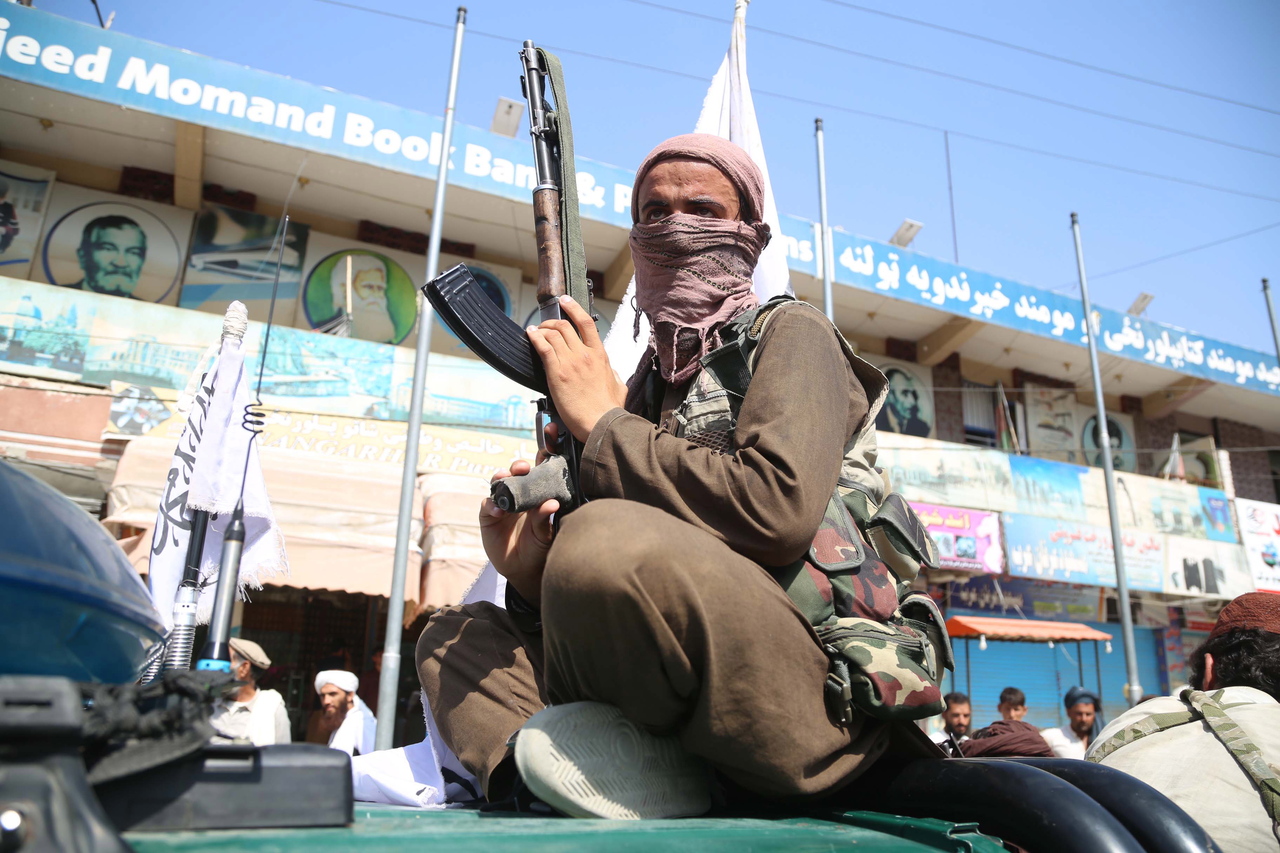At least 3 killed in anti-Taleban protests in Jalalabad; British PM says Taleban will be judged by its actions
Sign up now: Get insights on Asia's fast-moving developments

More than a dozen people were injured after Taleban militants opened fire on protesters in Jalalabad.
PHOTO: EPA-EFE
Follow topic:
KABUL (REUTERS) - At least three people were killed in anti-Taleban protests in the Afghan city of Jalalabad on Wednesday (Aug 18), witnesses said, as the militant group tried to set up a government and Western countries stepped up evacuations of diplomats and civilians.
More than a dozen people were injured after Taleban militants opened fire on protesters in the eastern city, two witnesses and a former police official told Reuters.
The Taleban have promised peace following its sweep into capital Kabul, saying it will not take revenge against old enemies and will respect the rights of women within the framework of Islamic law.
The witnesses said the deaths took place when local residents tried to install Afghanistan's national flag at a square in the city, some 150km from Kabul on the main road to Pakistan.
As the Taleban consolidated power, one of its leaders and co-founders, Mullah Abdul Ghani Baradar, returned to Afghanistan for the first time in more than 10 years. A Taleban official said leaders would show themselves to the world, unlike in the past when they lived in secret.
"Slowly, gradually, the world will see all our leaders," the senior Taleban official told Reuters. "There will be no shadow of secrecy."
However, thousands of Afghans, many of whom helped United States-led foreign forces over two decades, are desperate to leave the country.
More than 2,200 diplomats and civilians have been evacuated from Afghanistan on military flights, a Western security official said on Wednesday.
"We are continuing at a very fast momentum, logistics show no glitches as of now," the Western security official told Reuters.
The Taleban held its first news briefing since its return to Kabul on Tuesday, suggesting it would impose its laws more gently than during its harsh 1996-2001 rule.
"We don't want any internal or external enemies," Mr Zabihullah Mujahid, the Taleban's main spokesman, told reporters.
Women would be allowed to work and study and "will be very active in society, but within the framework of Islam", he said.
During its previous rule, also guided by syariah religious law, women were prevented from working, girls were not allowed to go to school and women had to wear all-enveloping burqas to go out, and then only when accompanied by a male relative.
'Time will tell'
British Prime Minister Boris Johnson, echoing leaders of other Western countries, said the Taleban would be judged on its actions.
"We will judge this regime based on the choices it makes, and by its actions rather than by its words, on its attitude to terrorism, to crime and narcotics, as well as humanitarian access and the rights of girls to receive an education," Mr Johnson said at an emergency session of Parliament, recalled from its summer break to discuss Afghanistan.
British lawmakers vented their anger on Wednesday at Mr Johnson and US President Joe Biden over the collapse of Afghanistan into Taleban hands, calling it a failure of intelligence, leadership and moral duty.
Britain has said it will welcome up to 5,000 Afghans during the first year of a new resettlement programme that will prioritise women, girls and religious and other minorities.
Many Afghans are sceptical of the Taleban promises. Some said they could only wait and see.
"My family lived under the Taleban and maybe they really want to change or have changed, but only time will tell and it's going to become clear very soon," said Mr Ferishta Karimi, who runs a tailoring shop for women.
Mr Mujahid said the Taleban would not seek retribution against former soldiers and government officials, and were granting an amnesty for former soldiers as well as contractors and translators who worked for international forces.
"Nobody is going to harm you, nobody is going to knock on your doors," he said, adding that there was a "huge difference" between the Taleban now and 20 years ago.
The Taleban, which had fought to expel foreign forces since it was overthrown in 2001, seized Kabul on Sunday as US-led Western forces withdrew under a deal that included a Taleban promise not to attack them as they leave.
US forces running the airport had to stop flights on Monday after thousands of frightened Afghans swamped the airfield looking for a flight out. Flights resumed on Tuesday as the situation came under control.
Seventeen people were wounded on Wednesday in a stampede at a gate to the airport, a Nato security official said, adding that civilians seeking to leave had been told not to gather unless they had a passport and visa to travel. He said he had not heard any reports of violence by Taleban fighters at the airport.
Britain said it had managed to bring out about 1,000 people a day while Germany flew 130 people out. France said it had moved out 25 of its nationals and 184 Afghans, and Australia said 26 people had arrived on its first flight back from Kabul.
"Everyone wants out," said one Afghan man who arrived in Frankfurt on Wednesday with his wife and son on a flight via Tashkent. "We saved ourselves, but we couldn't rescue our families."

